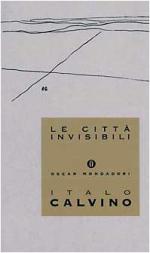|
This section contains 3,297 words (approx. 11 pages at 300 words per page) |

|
SOURCE: “Sex, Language, and Narrative: Continuity and Discontinuity in Italo Calvino's ‘Meiosis,’” in Studies in Short Fiction, Vol. 27, No. 2, Spring, 1990, pp. 203–09.
In the following essay, Fenwick explores issues of personal identity, sexual reproduction, and genetic continuity in “Meiosis.”
“Meiosis” is the centrepiece of a trilogy of short stories, also including “Mitosis” and “Death,” in which Italo Calvino speculates about the similarity between texts and biological organisms with respect to notions of continuity and discontinuity. In these stories, Calvino exploits the fact that he can construct analogies between language and texts on the one hand and DNA and biological organisms on the other, based on their similarities as systems. As Calvino's story demonstrates, both linguistic and organic systems are complex, flexible within limits (by virtue of the ability to rear-range components), polysemic, potentially self-referential, and theoretically inexhaustible: our species will probably be extinct before all possible English narratives and...
|
This section contains 3,297 words (approx. 11 pages at 300 words per page) |

|


